
A rigorous undergraduate program grounded in the classical Islamic tradition and designed for serious students ready to commit to high-level study of the sacred sciences.
per week
and onsite
per semester
graduation track
A Higher Standard of Islamic Scholarship | On Your Schedule

Miftaah Institute’s Bachelor’s Degree in Islamic Studies is a rigorous, text-based program grounded in classical scholarship and structured academic learning. Building on the foundation of Miftaah’s 54-credit Associate’s Degree, the Bachelor’s program offers an additional 72 credits of higher-level coursework in Arabic, Fiqh, Hadith, Tafsir, and related Islamic sciences. This degree is designed for students seeking depth, fluency, and precision in their Islamic studies. Students engage directly with primary Arabic texts under qualified instructors, developing advanced understanding across both theoretical and practical subjects of the Islamic tradition.
While the curriculum is demanding and academically structured, it is also flexible. Students have the ability to choose how many classes they take per semester, allowing them to tailor the pace of their studies to suit their individual schedules and responsibilities. Whether taken onsite at our Michigan campus or live online from anywhere in the world, all students are required to attend live sessions and complete examinations and classwork to receive credit.
Through this program, students will not only build intellectual depth, but also a framework of spiritual discipline, critical thinking, and service to the ummah.
Semester Schedule
January 1st, 2026
January 6th, 2026
April 28th, 2026
Winter 2026 Courses Offered
Text Covered: Hidayat al-Nahw
Course Code: ARB 401
Status: Requirement
This course provides an in-depth study of advanced syntactic structures in classical Arabic, emphasizing the application of theoretical grammar principles from Hidāyat al-Nahw. Students will refine their ability to analyze and deconstruct complex sentence patterns, resolve ambiguous constructions, and develop an advanced understanding of grammatical nuance. The course includes applied exercises using excerpts from Qur’anic passages, Hadith, and classical prose, preparing students for independent reading and comprehension of unvoweled Arabic texts.
Text Covered: Taysīr Muṣṭalah al-Hadith by Dr. Maḥmūd al-Ṭahān
Course Code: HAD 402
Status: Requirement
This foundational course covers the science of Muṣṭalaḥ al-Ḥadīth, equipping students with the technical knowledge required to evaluate narrations according to traditional Islamic standards. Based on Dr. Ṭahān’s Taysīr Muṣṭalaḥ al-Ḥadīth, the course examines classifications of hadith (ṣaḥīḥ, ḥasan, ḍaʿīf), criteria for authenticity, types of narrators, and key terminology. It also introduces common causes for weakness or fabrication and explores how scholars preserved the prophetic legacy with academic rigor. The course serves as a gateway into the broader hadith sciences and lays the groundwork for critical engagement with narrations.
Text Covered: Sections from Ṣafwat al-Tafāsīr by Imam al-Ṣābūnī
Course Code: TFS 403
Status: Requirement
This course offers a guided reading of selected sections from Ṣafwat al-Tafāsīr by Imam al-Ṣābūnī, introducing students to a contemporary yet textually grounded approach to Qur’anic interpretation. Through close study of a few chosen sūrahs, students will explore how modern exegetical works synthesize classical tafsīr, linguistic analysis, and thematic reflection. Emphasis is placed on understanding the author’s methodology, recognizing how earlier sources are integrated, and engaging the Qur’anic message in a clear and accessible way.
Text Covered: Min Adab al-Islam by Shaykh ʿAbd al-Fattāḥ Abū Ghuddah
Course Code: TZK 452
Status: Elective
This course offers a focused study of Islamic etiquette and ethical conduct through the book Min Adab al-Islam by Shaykh ʿAbd al-Fattāḥ Abū Ghuddah, a concise yet profound work that gathers prophetic teachings and classical guidance on manners. Students will explore key themes such as modesty, hospitality, proper speech, emotional discipline, and the refinement of daily behavior. Emphasizing the harmony between inward purification and outward practice, the course guides students to embody prophetic character through practical adab rooted in authentic texts.
Text Covered: TBD
Course Code: FIQ 451
Status: Elective
This course offers a historical survey of the emergence and evolution of the Islamic legal schools (madhāhib), with a focus on their methodological distinctions and contributions to the development of fiqh. Students will examine the legal environments of early Islamic history, the foundational figures of each school, and the sociopolitical factors that shaped jurisprudential interpretation. The course also investigates how legal theory was codified and transmitted, highlighting the enduring relevance of these methodologies in modern legal discourse.
Text Covered: Select chapters from al-Luʾluʾ al-Maknūn by Musa ibn Rāshid al-ʿAzimī
Course Code: HIS 401
Status: Requirement
This advanced sīrah course offers a deep, source-driven exploration of the life of the Prophet Muhammad ﷺ through selected chapters of the contemporary work al-Luʾluʾ al-Maknūn by Musa ibn Rāshid al-ʿAzimī. Although modern in authorship, the text is built upon authentic narrations drawn directly from the major hadith collections, allowing students to study the Prophetic biography through verified reports. Guided close readings will highlight how the author compiles, organizes, and analyzes these narrations. Through this careful engagement with evidence-based narration, students will experience the sīrah in a more precise, nuanced, and textually grounded way.
Program Instructors
Apply for Financial Assistance
Click the link below to apply for financial tuition assistance or to pay your tuition in instalments payments.
Learn more
Not ready to enroll but want to learn more?
Download the program catalog to review program details.
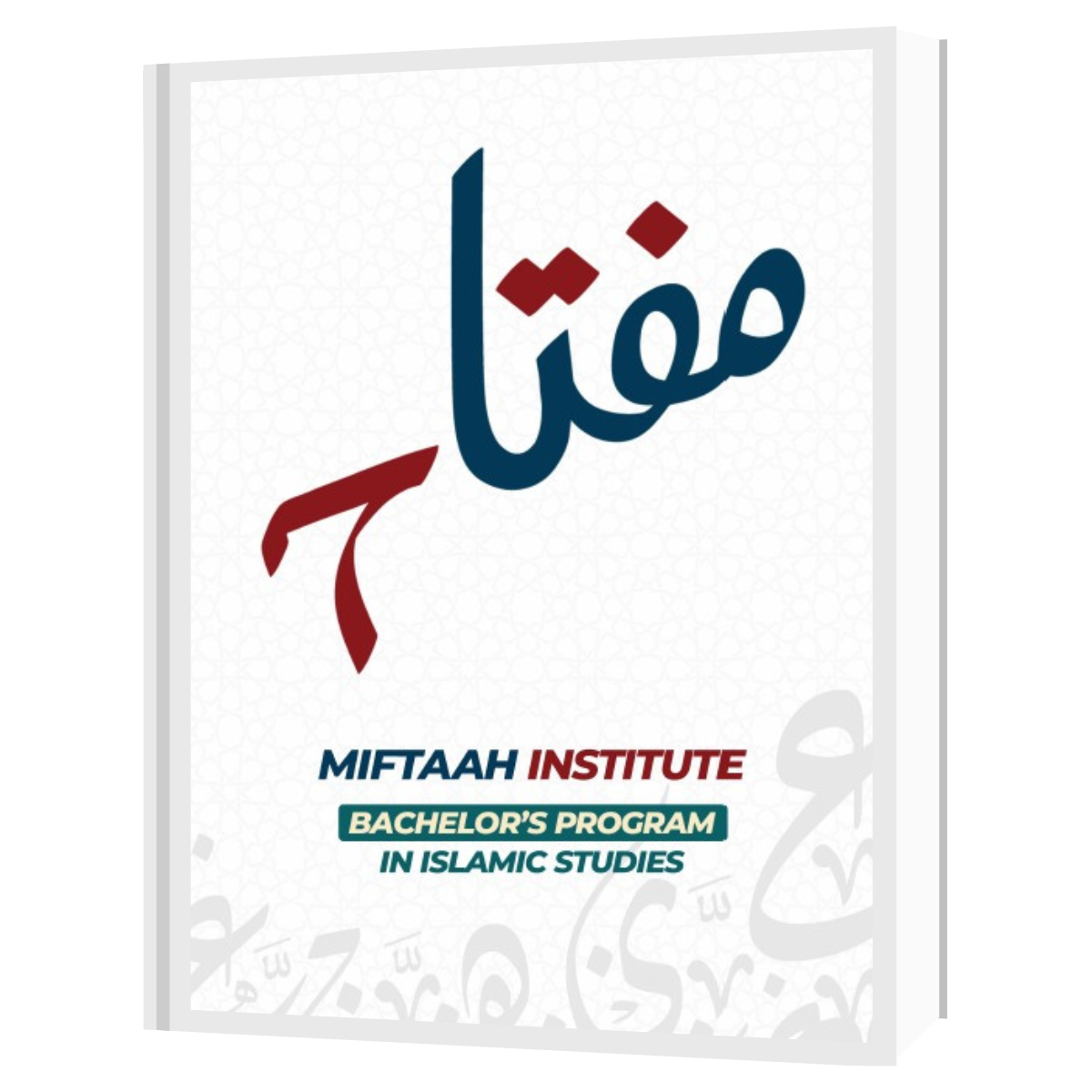 Student handbook>
Student handbook> frequently
Asked
Questions

This program is designed for students who have already completed foundational Islamic studies—such as Miftaah’s Associate’s Degree—and are ready to engage in advanced coursework rooted in classical texts and Arabic literacy. It is best suited for students who are serious, self-motivated, and disciplined in their studies.

The program typically takes 3–4 years to complete, depending on how many courses you choose to take per semester. Students may study full-time or part-time.

The Bachelor’s program is offered in a hybrid format. Students can attend either onsite at the Miftaah campus in Warren, Michigan, or join live online from anywhere in the world. However, all students are required to attend classes live during their scheduled times.

Yes. Upon successful completion of the full curriculum, students will receive a Bachelor’s Degree in Islamic Studies from Miftaah Institute. Please note that Miftaah Institute is a private Islamic educational institute and is not accredited by any regional or national accrediting body.

In some cases, yes. If you have completed course work else where that is equivalent in content and rigor, you may apply for credit transfer. All transfer requests are reviewed on a case-by-case basis and may require exams or interviews.

If you have studied elsewhere and can demonstrate equivalent knowledge (especially in Arabic), you may be eligible to take a placement exam for admission.

The program is self-paced in terms of course load, but live attendance is required for all classes. There is no recording-only option. Students must attend their registered courses in real-time, whether onsite or online.

No. This is a credit-based academic program. Students must complete all coursework, exams, and attendance requirements to earn credit and progress through the program. There is no casual or audit option available.

You should already have a strong foundation in Arabic grammar and morphology (nahw and sarf) before beginning the program. Many of the primary texts used in the curriculum are written in Arabic.

Yes. Each course includes at least two formal assessments per semester. Passing all assessments is required to complete the course and remain in good academic standing.

Yes. Enrolled students will retain lifetime access to their course materials for personal review and continued benefit.


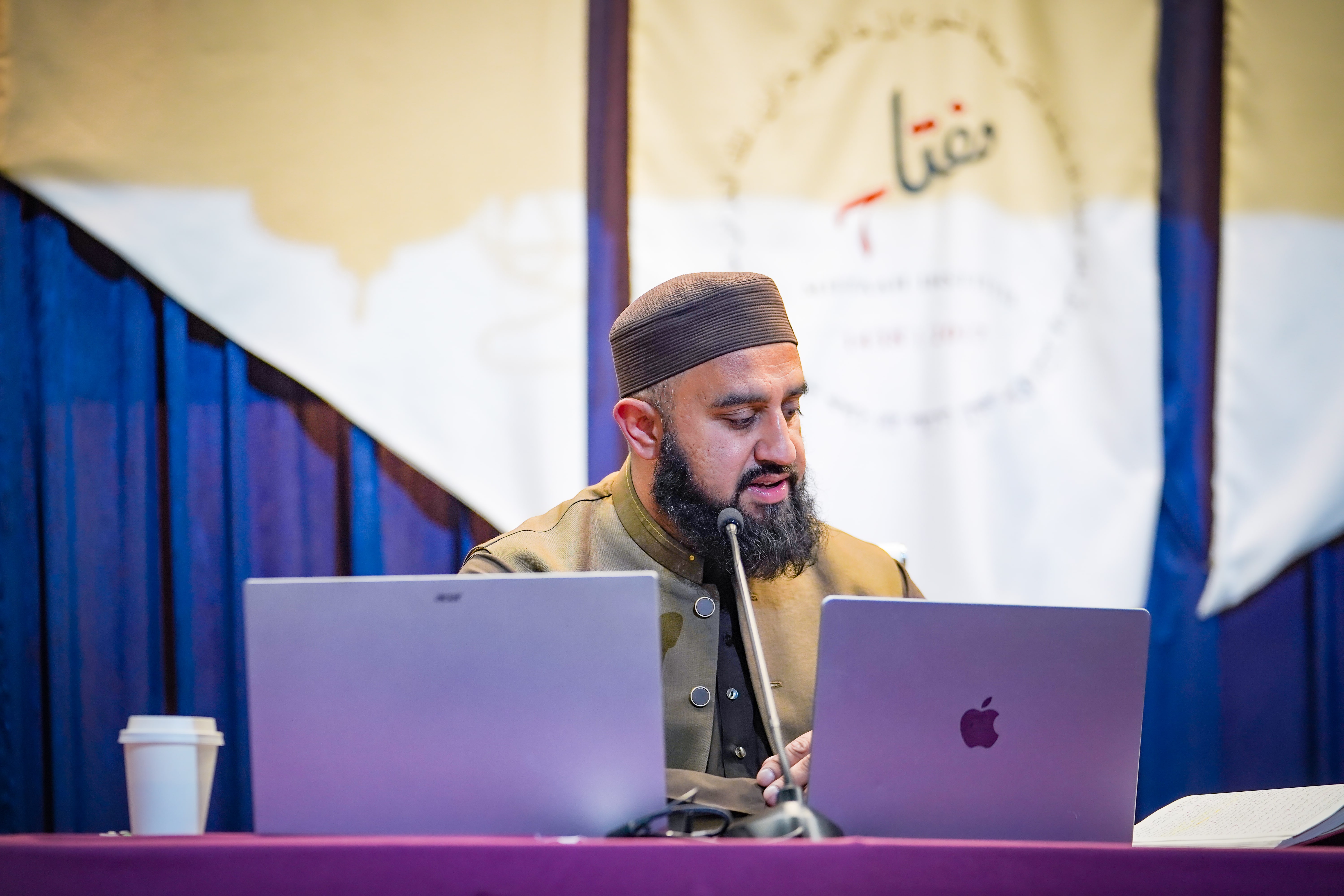
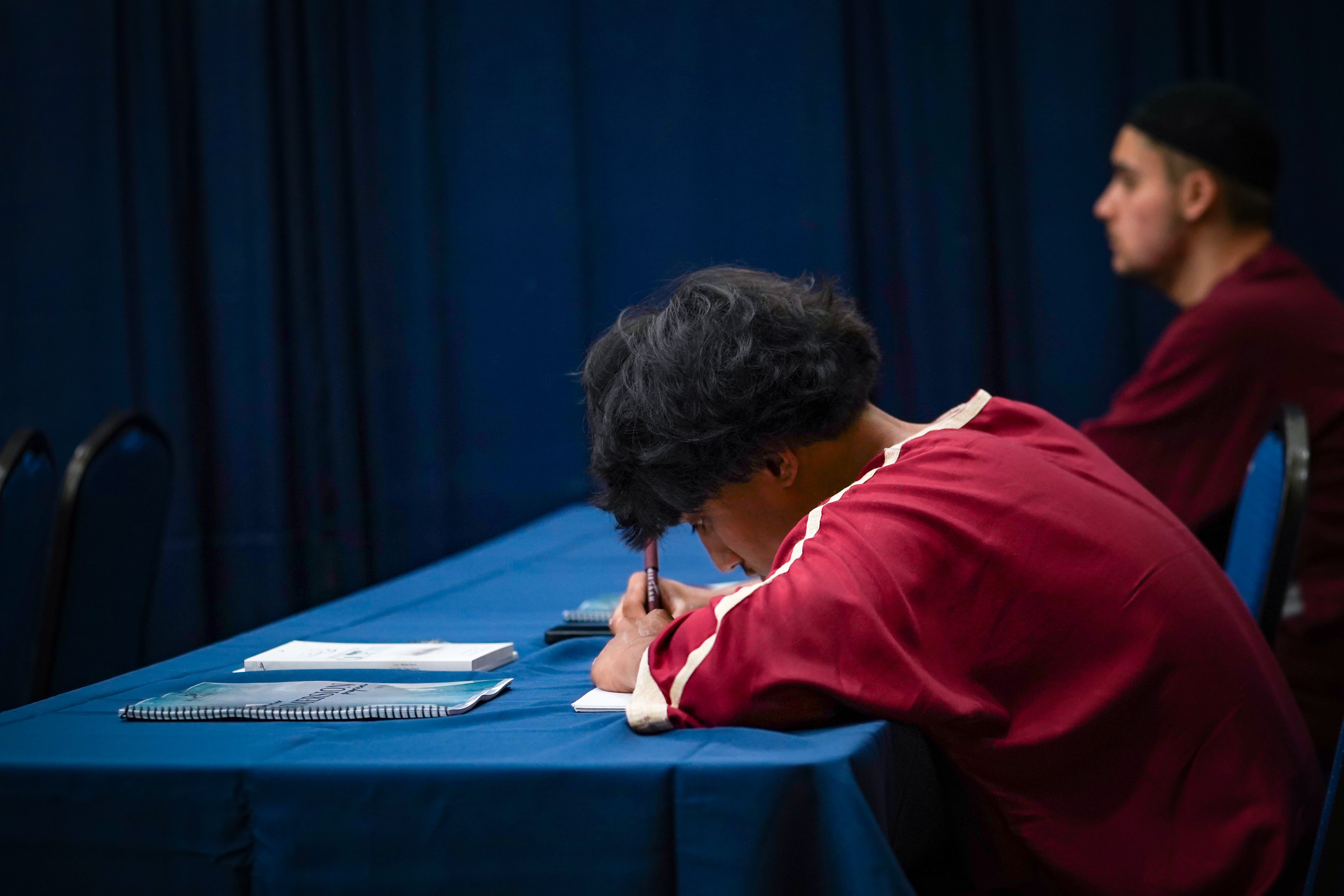

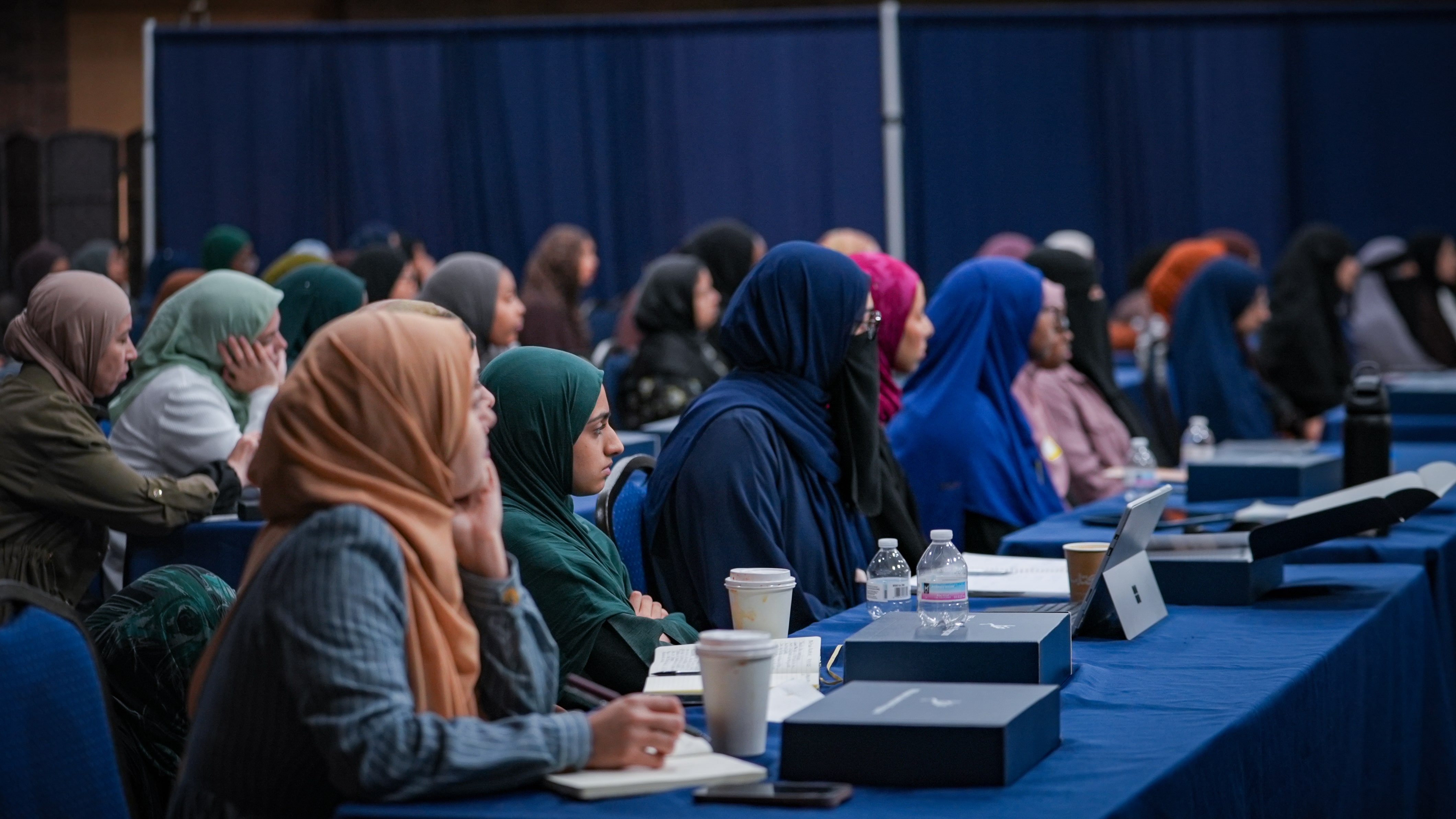



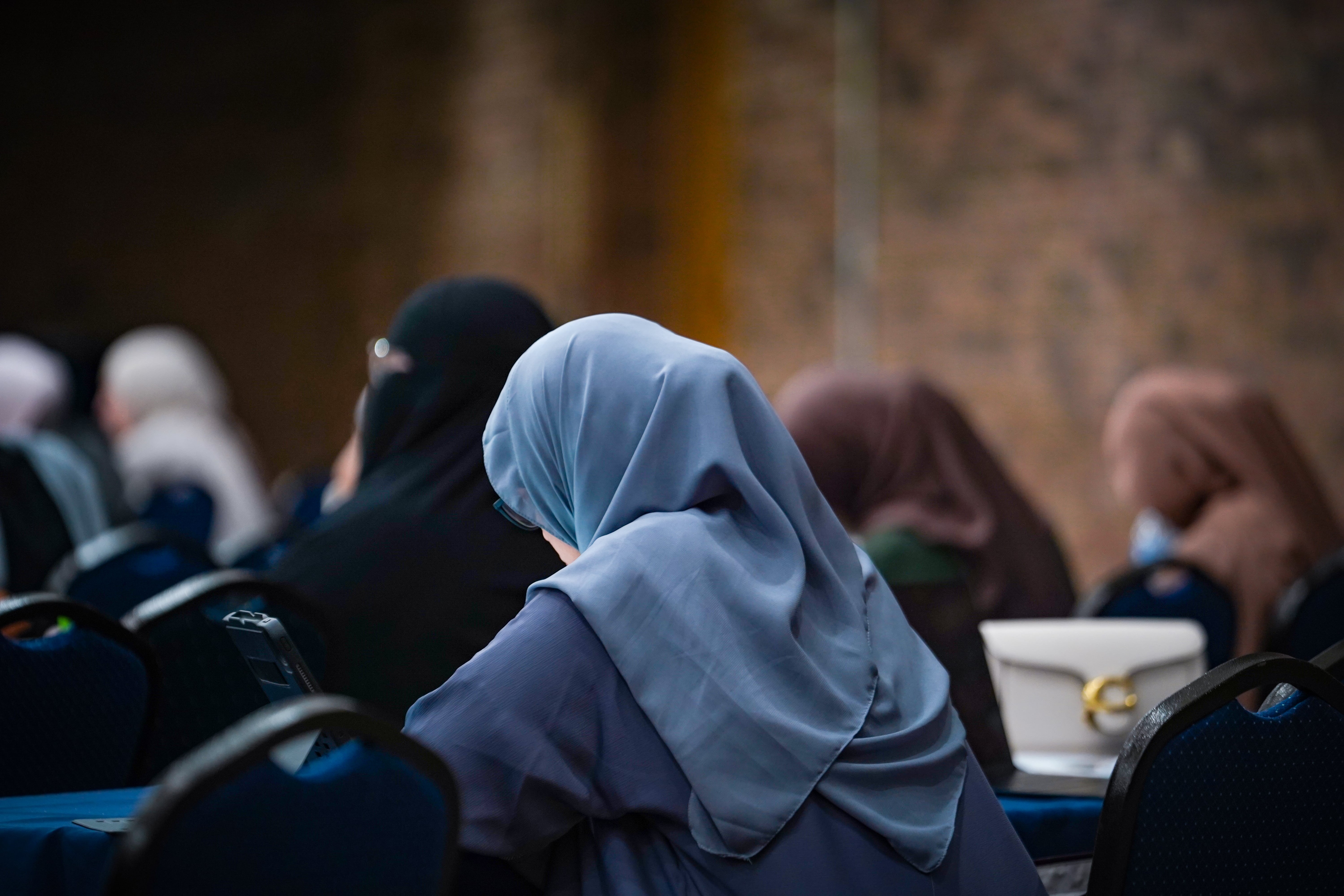
-p-500.webp)
.webp)



.webp)